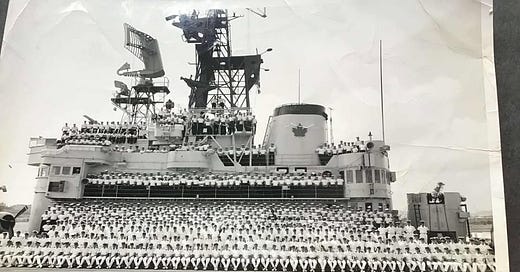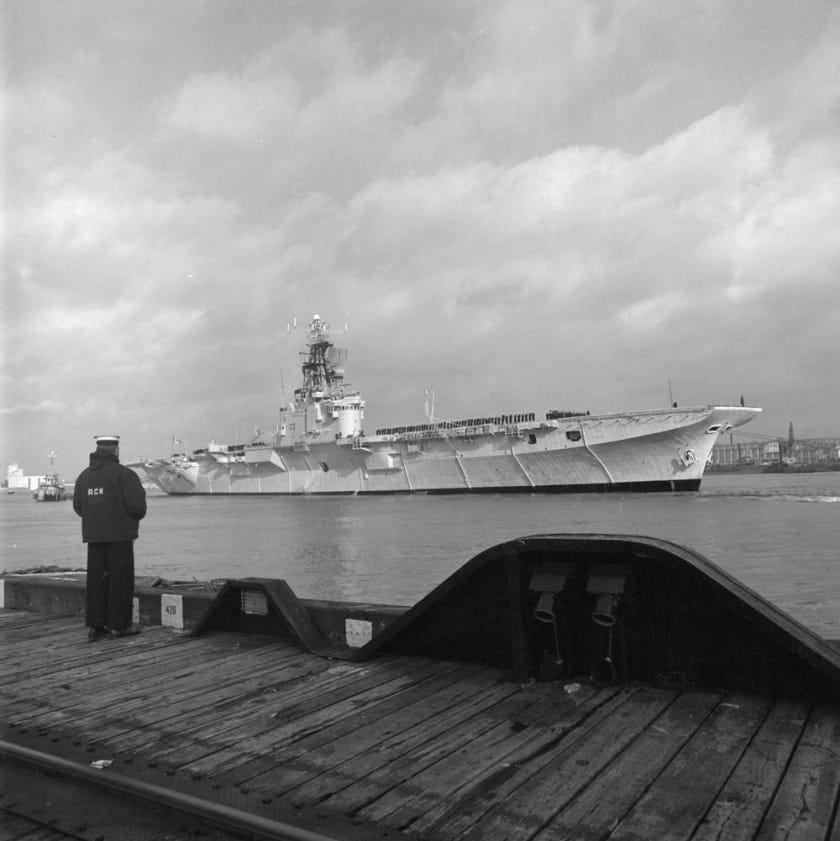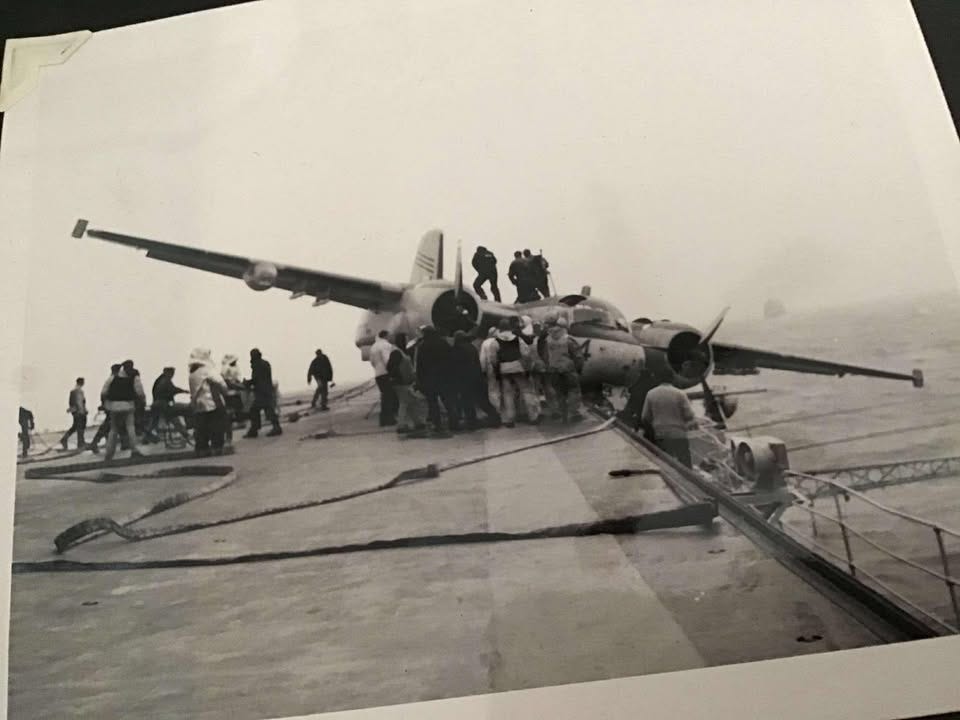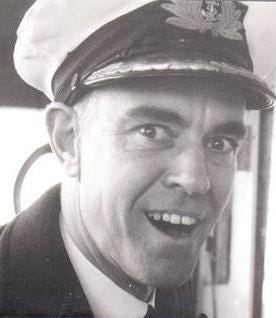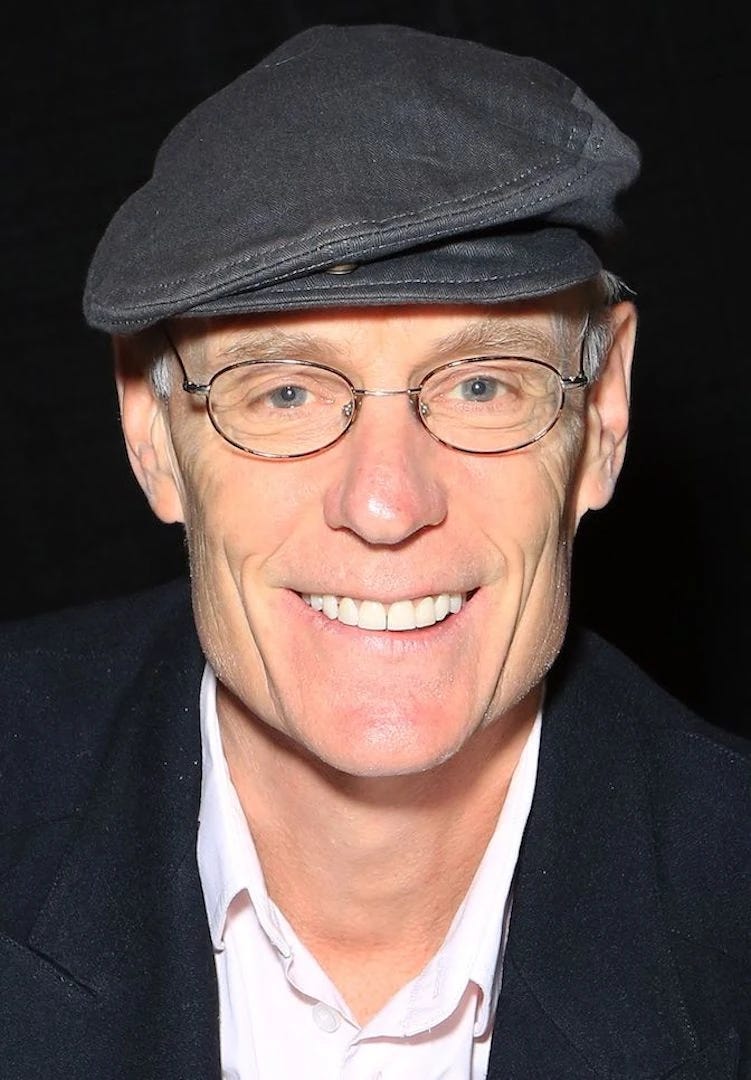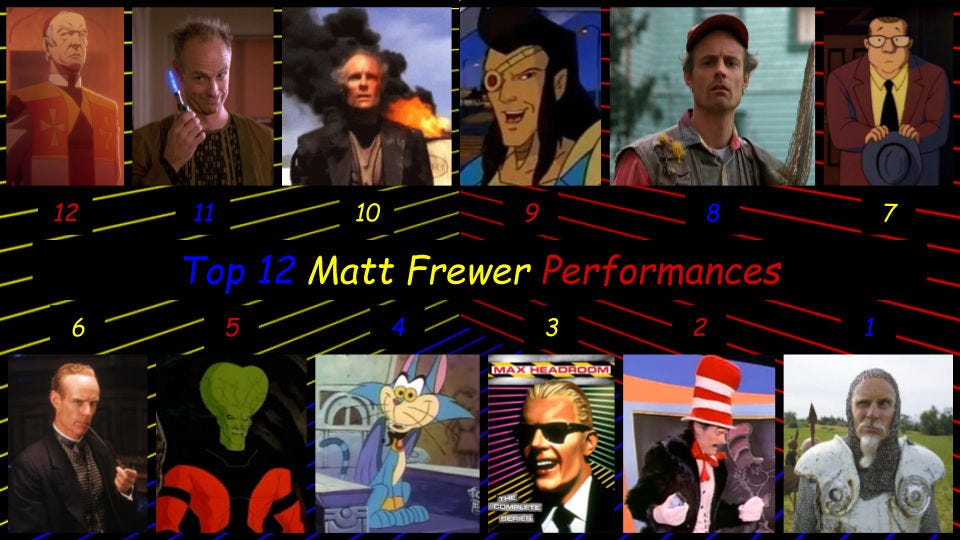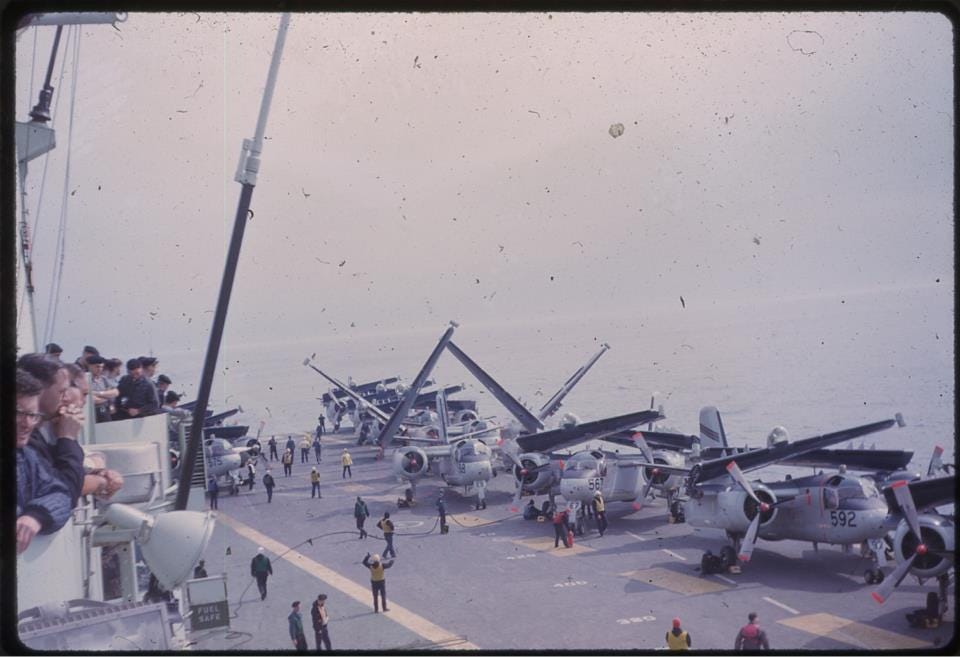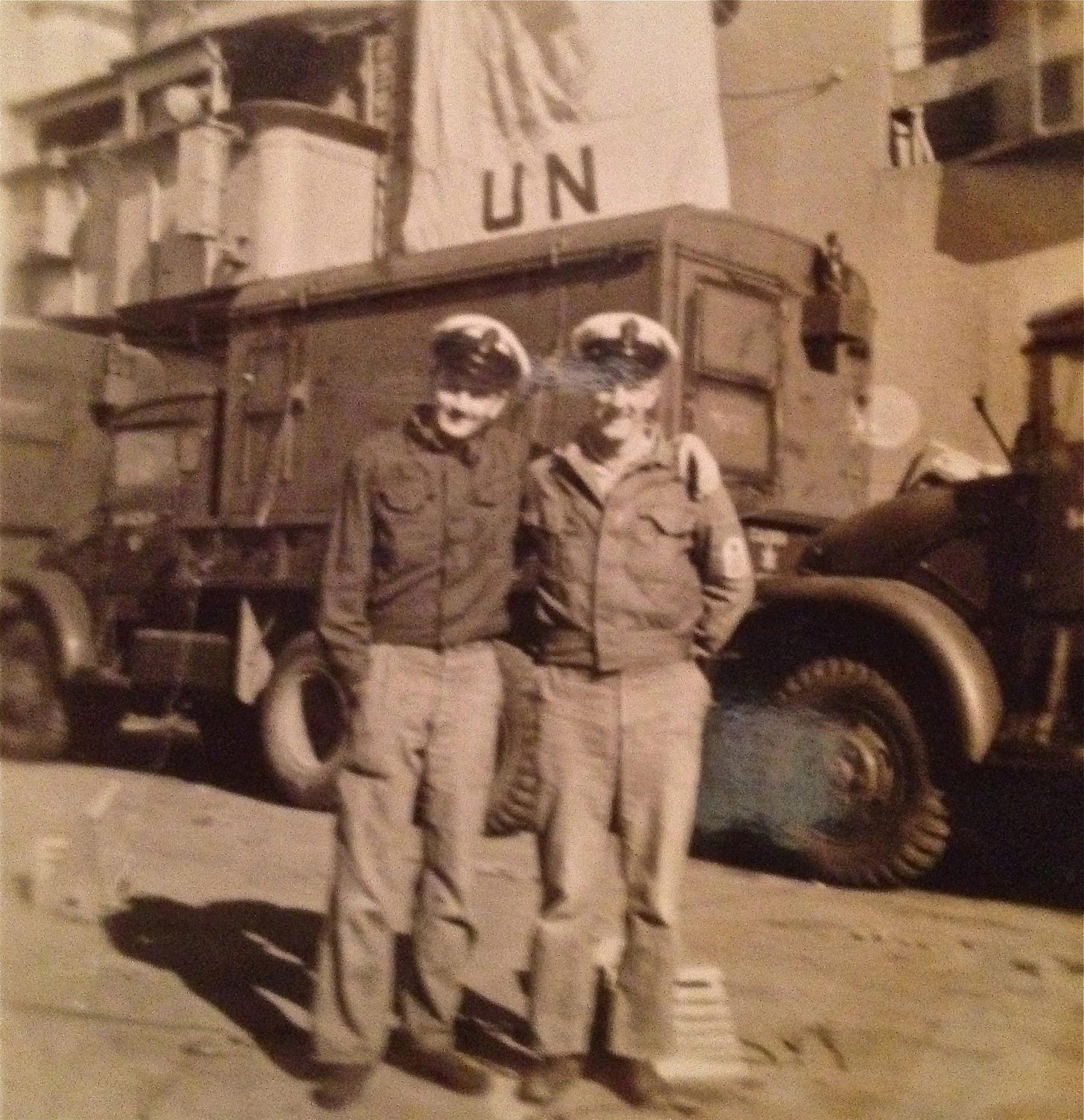I always think it's coincidence - meeting people whose father, grandfather, or family member sailed on the Bonaventure with my father.
What are the chances?
Well, actually, they're pretty good. I’ve heard that with a crew of over 1,200 that nearly 7,500 served on the ship over its years in service. It included pilots, maintenance crews, and support staff for the aircraft, as well as the ship’s officers and enlisted sailors.
This complement was significant for the Royal Canadian Navy and highlighted the logistical demands of operating an aircraft carrier.
HMCS Bonaventure was Canada’s last aircraft carrier and a symbol of the Royal Canadian Navy's proud post-war modernization and Cold War ambitions. Originally built as HMS Powerful, a British Majestic-class light aircraft carrier, the ship was purchased and completed for the Royal Canadian Navy (RCN). Commissioned in 1957, Bonaventure became the pride of the fleet, designed to support anti-submarine warfare operations vital during the Cold War.
The carrier was equipped with advanced aircraft for its time, including the Grumman Tracker for submarine detection and the Sikorsky HO4S-3 helicopter for rescue and utility missions. Later, it operated the Banshee jet fighter, making it a key component of Canada's NATO commitments.
Despite its significance, Bonaventure faced operational challenges, including high maintenance costs, some notable crises, and a relatively small air group compared to larger carriers. Trudeau’s navy doctrine of coastal defense effectively ended Canada’s blue water navy that had risen so proudly and naturally through the Second World War. The Canadian government decommissioned the ship in 1970 after only 13 years of service.
Bonaventure's legacy is bittersweet—representing Canada’s ambitions to project naval power and its transition to a more modest navy focused on patrol and sovereignty missions. Today, the ship is remembered as a unique chapter in Canadian naval history, embodying both the promise and peacenik ideology. But Navies aren’t intended or built for modest purposes.
Under the previous Liberal government of Lester B. Pearson, the unification of Canada’s armed forces was implemented, and Trudeau’s administration continued this controversial policy. Unification diluted the distinct identity and strategic focus of the RCN, as it became part of the broader Canadian Forces, where naval priorities often took a backseat to local operations.
Trudeau
The decommissioning of Bonaventure and subsequent budget cuts marked the decline of the RCN’s standing as a blue-water navy. The RCN transitioned to a smaller, more regionally focused force, emphasizing anti-submarine warfare (ASW) within NATO and domestic sovereignty missions. While the RCN retained capabilities in ASW and frigate operations, it lost its ability to project power globally, a capacity embodied by Bonaventure.
Trudeau's government justified these changes as necessary for economic efficiency and a reflection of Canada’s more modest military ambitions. Critics, however, argue that these policies weakened the RCN and diminished Canada’s influence and prestige on the international stage.
Trudeau’s defense policies, including the decommissioning of Bonaventure, remain a contentious chapter in Canadian military history that will be on display front and centre in the coming years as a new government struggles to reestablish the navy to fulfill its long-forsaken commitments to NATO, the world, and itself.
“A navy only serves one primary purpose,” said Admiral Hyman G. Rickover, often called the "Father of the Nuclear Navy". He had a pragmatic and pointed view of the Navy's purpose. He is famously quoted as saying:
"The primary purpose of the Navy is to carry out prompt and sustained combat operations at sea."
Rickover emphasized that the Navy’s ultimate function was not about ceremonies, tradition, or bureaucracy but about maintaining readiness to engage in warfare effectively. His approach to leadership, especially in developing the U.S. nuclear-powered submarine program, reflected his belief in discipline, competence, and the Navy’s unwavering focus on its combat mission.
Rickover often criticized inefficiency, waste, and complacency within the military, advocating for a Navy that prioritized functionality and accountability to fulfill its purpose. His statement underscores his relentless focus on operational excellence and readiness for conflict.
The idea of projecting power anywhere in the world is a cornerstone of U.S. Navy doctrine and is most often expressed through the concept of "forward presence" and "power projection" within its overarching maritime strategy. These principles are articulated in key documents like the U.S. Navy's Maritime Strategy, the Tri-Service Maritime Strategy, and operational guidelines.
It doesn’t matter what you or I or Canada think of this. If any country thinks this way then we must also, no matter what our more noble goals.
It’s difficult for most of us who’ve never been to sea in a meaningful way to understand we live on an ocean-covered planet with one continuous body of water covering the vast majority of the planet spotted with islands large and small. In fact, as the planet warms, that body of water is growing every day. The greatest and wealthiest countries are simply the ones with the best ports.
While the ocean is not entirely free of crime—drug smuggling, illegal fishing, and human trafficking persist—the sea is far more orderly than one might expect. It's a testament to global cooperation and shared economic stakes in an otherwise anarchic space. Today, while no single nation fully "rules" the seas, the U.S. Navy, along with allied forces, plays a significant role in maintaining maritime order. This presence deters large-scale piracy and ensures the free flow of goods, as modern economies depend on reliable sea trade routes.
The notion that a prosperous country thrives in a peaceful world has been a central theme in Navy doctrine for thousands of years, emphasizing the Navy's role in maintaining global stability to support national prosperity.
President Theodore Roosevelt stated it plainly:
"A good Navy is not a provocation to war. It is the surest guaranty of peace."
For the last 80 years, no battles or sustained organized actions happened on any sea in the world without the tacit approval of the US Navy and its allies. It’s not often discussed. It would be reasonable to expect the ocean, out of sight of land, outside the law, ungoverned by any nation would be a lawless wasteland filled with pirates, marauders, and crime. It is not. It is a modern unspoken understanding of the old British Empire expression, “Whoever rules the waves, rules the world.”
Sir Walter Raleigh, wrote in 1616:
"Whosoever commands the sea commands the trade; whosoever commands the trade of the world commands the riches of the world, and consequently the world itself."
Nothing has changed. Whether that control is projected from the sea surface, beneath it, above it in air or space, or some combination of the three, we are entering into a chapter of history where America and her allies’ control of the world’s oceans will be tested in some way for the first time since the Japanese Navy’s attacks on Pearl Harbour and Midway Islands.
Again, it doesn’t matter what we think of this. It is going to happen. And I would be among those who would like to see the era and current direction of the last 80 years continue on the sea. If that is to happen Canada will have to return to the days of the Bonaventure’s birth and rethink its own naval doctrine.
If the goal is to be a prosperous country in a peaceful world, this is how it is done.
The Bonaventure Clan Generations Later
On a lighter note.
My best Bonaventure ‘family’ meeting was in the airport in Phoenix Arizona.
Mike Fletcher and I had gone to visit Clive Cussler about planning Sea Hunters adventures for National Geographic.
In the departure lounge as we waited for the flight I heard an old couple behind us deeply confused about their flight, seats, and times. Just as I was about to help, I heard a man step in to help get them sorted. He had a wonderful voice and I knew they were in good hands. I settled back into my book and half listened as he calmed and charmed them.
I was so moved by his line of talk I mentioned it to Fletcher.
As we were boarding the plane he handed me his ticket. "Let's swap." he said, "You can sit next to your boyfriend".
I laughed but took the ticket. I did want to sit next to him.
As the plane took off, I took off into telling the man right to his face how impressed I was with him. And it just got better from there. I liked EVERYTHING about the man and we settled into a long conversation that started in fast and deep, just the way I like, and then backtracked to fill in details of names and places.
His last name was Frewer.
I had only heard of one man with that name. I never met him but he lived in our house. My father, as dour and taciturn an old-time naval officer as you can imagine was not often impressed with many men. But he held one in the highest regard. Freddy Frewer, Commander on the HMCS Magnificent and the Captain of the HMCS Bonaventure during his time onboard.
My father’s time on HMCS Bonaventure was marked with calamity and crisis, but through it all he believed Frewer was the man who could rise to any challenge and just got better, smarter, faster, and more creative the worse things got. I don’t think anyone inspired him more than Frewer.
In fact, I’m quite certain he would have died for the man and the ship…
So, I suppose I wasn’t totally unprepared when the man on the plane said that Captain Freddy Frewer was his father.
It must have seemed funny. I had a whole raft of stories to share with him about his father that I had heard so many times I knew them by heart, but would never, except for my brother, have a single soul in the world to meaningfully share them with. But here we were on our way to California and I told them all. It was a joy to tell the man how much his father was known and respected in our home, far away in Halifax.
It wasn’t until we were circling LAX that I got around to asking the man, Matt, what he did and why he was on his way to LA.
He described himself as a “b” level actor in such a way that was neither sad nor desperate. He wasn’t humble bragging or phoney. It seemed a very tradesmen-like comment, and I took him to be very happy with his lot in life. We went on with our conversation about the world and everything in it quite joyfully.
It wasn’t until we were getting off the plane, walking together, and people were obviously noticing him that it occurred to me that Matt Frewer was well-known to generations of people. “B” actor he may be, but when your parts include Max Headroom, Dr. Aldous Leekie – Orphan Black (TV Series, 2013–2014), Russell “Big Russ” Thompson Sr. – Honey, I Shrunk the Kids (1989), Moloch the Mystic – Watchmen (2009), Berlinghoff Rasmussen – Star Trek: The Next Generation (TV Series, 1991), Taggart – Eureka (TV Series, 2006–2012), Psi Factor: Chronicles of the Paranormal" (1996–2000) – Matt Praeger, and many Stephen King based movies including Riding the Bullet" (2004), you’re a little more famous than most.
We became great friends in the years after that, he visited us often in Halifax, and though none were picked up, we developed several shows together in the early years of Arcadia including HOW WE GOT, which I still believe is the best show we never made.


